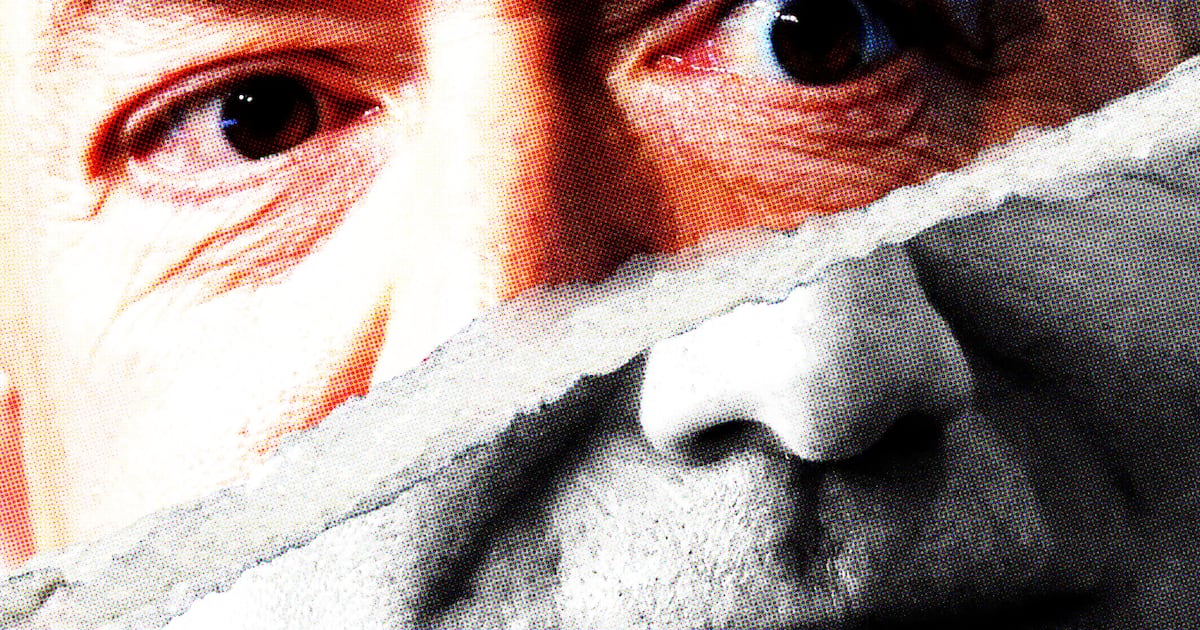
Is Arnold Schwarzenegger’s career in electoral politics coming to an end?
Perhaps. Term limits will push California’s governor out of office at the end of 2010. And the speculation about what he might do next—once an intense sport here—has declined along with his state’s finances and his own approval rating, which dwells in the high 20s in the most recent public poll. When he was wildly popular back in 2004, Schwarzenegger routinely was asked in interviews about the possibility of an amendment to the U.S. Constitution’s “natural born citizen” clause that prevents the foreign-born from holding the presidency. It has been a long time since Schwarzenegger got that question.
These days, Schwarzenegger, in public and in private, has made clear that he has no plans beyond the final 17 months of his term.
ADVERTISEMENT
It now seems possible that he may not run for any office again. Predicting the career moves of Schwarzenegger, who turns 62 this week, is a nearly impossible task. This is a man who told friends and political aides that he wasn’t running for governor in 2003—and then jumped in the race at the last second (as those aides prepared to hand out a press release saying that he was sitting out). But these days, Schwarzenegger, in public and in private, has made clear that he has no plans beyond the final 17 months of his term.
That’s the right call. California’s problems are so profound that there is little time to think about much else. Schwarzenegger, facing declining tax revenues, has been forced to negotiate three different budget deals in the past 10 months. (Typically, California has one budget agreement a year.) The governor needs to break legislative logjams on issues of water (some Central Valley farms are literally turning to dust), prisons (which are being supervised by the federal courts), and health care (his legislation on universal coverage, which resembles the president’s, made it through the Assembly but stalled in the state senate early last year). He also says he wants to reform the tax system and support a convention to remake the state constitution.
The governor’s focus on the present is so strong that when I asked Adam Mendelsohn, a top political strategist who advises the governor, what might be next for Schwarzenegger, he first thought I was talking about the governor’s agenda for the last year and a half in office. When I explained I was writing about his post-gubernatorial career, Mendelsohn was blunt: “There is no planning right now whatsoever for any kind of political office or campaign.”
Of course, devotion to his present duties is also good politics. Schwarzenegger can claim a legacy—groundbreaking climate change legislation, reform of California’s method for drawing state legislation districts, and a revamping of the state’s workers compensation system. But, despite Herculean efforts that included putting measures to voters at two different special elections, he has failed to achieve his top priority of fixing the state’s broken budget system. If he can’t do much better in the next 17 months, history may not be kind. But if he somehow can dig the state out of its fiscal mess, Schwarzenegger will have no shortage of political options.
What might those be?
The U.S. Senate: Schwarzenegger, who is famously impatient with all the time wasted during the legislative process, has never shown much interest in joining the world’s greatest deliberative body. But Democrats and Republicans often mention him as a possibility. U.S. Sen. James Inhofe, a conservative Oklahoman, told me last year that he had heard his colleague Barbara Boxer, who faces re-election next year, talk with real concern about a Schwarzenegger challenge. Not anymore. Boxer is likely to battle former Hewlett Packard CEO Carly Fiorina or conservative State Sen. Chuck DeVore in the 2010 general election. Some suggest Schwarzenegger could run for the U.S. Senate in 2012, particularly if popular incumbent Dianne Feinstein retires.
“2012 is plausible,” says Rob Stutzman, a leading political consultant who was a former senior aide to Schwarzenegger. “It depends on how the next year goes and how his governorship ends up.” But even if he wanted to make the race, the moderate Schwarzenegger could struggle in a GOP primary dominated by highly conservative voters.
An Obama appointment: Schwarzenegger and Obama have been full of praise for each other. Those around the governor believe he would make a fine secretary—commerce, energy, transportation, and even EPA administrator are mentioned. But those jobs are, for now at least, occupied. A confirmation would be no picnic for Schwarzenegger. He has battled nearly all of the state’s leading unions, whose leaders would likely oppose him.
An ambassadorship might make more sense. Schwarzenegger, whose movies often did better overseas than in the U.S., could make a big splash as an envoy to major Asian countries, where he is hugely popular. A wild card choice for Arnold-style diplomacy? Israel, where Schwarzenegger (whose father, an Austrian cop, was a Nazi party member during World War II) has visited often and developed deep ties through his friend and fellow Austrian, the late Simon Wiesenthal.
Leading Los Angeles. “The mayor of LA is still out there,” says Stutzman, who notes that this Democratic city elected a moderate Republican, Richard Riordan, twice in the 1990s. Term limits could open the seat up in 2013. The upside? Schwarzenegger enjoys heavy lifting, and being mayor might be even more difficult than being governor. The downside? Getting elected would be hard given his difficult history with organized labor.
If none of these options appeal, what might he do?
The governor, long before he got into politics, was an early adapter to the now-common 21st century career path of holding multiple jobs at once. Through the 1990s, he was a movie star who also worked as a real estate investor, owner of a huge fitness convention in Ohio, and developer of after-school programs in 15 cities nationwide.
One aspect of the Schwarzenegger’s personal philosophy is: always add, never subtract. In putting together a post-gubernatorial life, he could resume some of his previous duties—particularly in fitness and after-school programs—and combine them with new jobs. For one, he would be a natural as a major investor in, or board chairman of, companies building the new green economy that Schwarzenegger has championed in office.
Another option is media. Schwarzenegger has embraced the Internet, using Twitter several times daily and making his own online videos. (One recent effort, which involved him wielding a knife in his office, drew criticism from those unhappy about budget cuts.) I also can testify, after years of interviewing Schwarzenegger, that the governor has a reporter’s instinct for the right question and would make an excellent TV talk-show host.
As it happens, the studio where Larry King broadcasts his nightly CNN show is a straight shot down Sunset Boulevard from Schwarzenegger’s home. Ryan Seacrest has been talked about as King’s successor. But why put a girlie man in Larry’s chair when you could have Arnold?
Joe Mathews is a journalist, an Irvine senior fellow at the New America Foundation, and a contributing writer at the Los Angeles Times. He previously served as Justice Department reporter for the Wall Street Journal and as a city desk reporter at the Baltimore Sun. He is the author of The People's Machine: Arnold Schwarzenegger and the Rise of Blockbuster Democracy.





